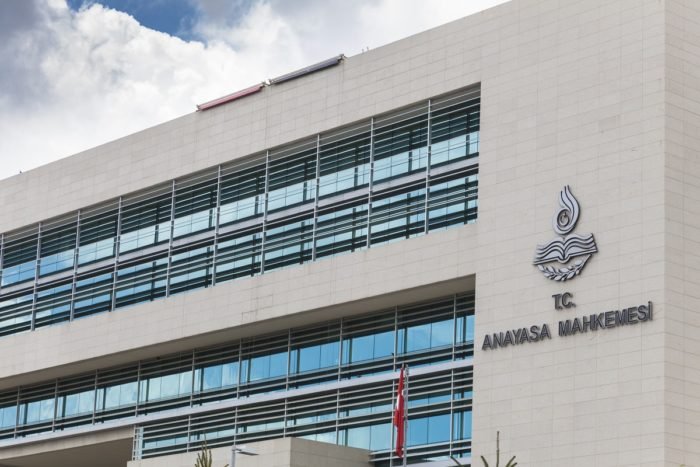A young journalist who is a video editor at a national TV station in Turkey has been behind bars for 315 days over a donation he made to a legal charity that delivered aid for the people in need around the world.
Bünyamin Aldı, 30-year-old journalist who worked for a national network Irmak TV was detained on January 6, 2017 in İstanbul when anti-terror police units raided his home 4 a.m. in the morning.

Aldı was subjected to physical and psychological abuse in the police station for weeks before he was brought to the arraignment hearing on January 31, 2017. He was charged under anti-terror law and sent to İstanbul’s notorious Silivri Prison.
The public prosecutor seeks 22-year jail time for the journalist according to the indictment that was filed months after his arrest.
Aldı is accused of being member of a terror organization called FETÖ, a derogatory term coined by the authoritarian President Recep Tayyip Erdoğan government to refer to members of the civic Gülen movement. The group is highly critical of the Turkish government on corruption and Erdoğan’s arming Jihadist groups in Syria.
The purported evidence the prosecutor presented in the indictment against the journalist as follows:
- Making a donation to a relief organization, namely, Kimse Yok mu which was closed down by a government decree in the aftermath of a failed coup attempt. The charity was perfectly legal entity before the government unlawfully closed it and had been delivering aid to the needy across the world.
- Having an account at Bank Asya that is affiliated with the Gülen movement which was one of the three banks with the highest liquidity in Turkey. The government unlawfully took over the bank on February 4, 2015, contrary to strict statutory banking regulations against such a drastic move. The bank, which had 210 branches, 5,000 employees and around 1,5 million clients, was founded on October 24, 1996 upon formal approval from the regulators. It has operated under the supervision of the independent regulatory bodies in Turkey that were responsible for overseeing the banking sector. It was a popular bank.
- Downloading a smart phone application, ByLock, which is technically similar to WhatsApp, Signal, Skype and Blackberry messenger.
David Kaye, the UN Special Rapporteur for Human rights, highlighted in his report submitted to the UN’s Human Rights Committee (6-23 June 2017) that governmental action on ByLock usage is the criminalization of encryption which is an example of human rights abuses.
A report published by Stockholm Center for Freedom (SCF) has revealed the absurd pretexts used by prosecutors to indict suspects and judges to jail innocent people who are alleged to have been affiliated with the Gülen movement. Thus, the report finds that the fundamental principles of law such as “no crime without law,” “individual criminal responsibility,” “the ban on retroactive criminal laws,” “a requirement qualifying the commission of an offense” and “equal protection under the law” have explicitly, intentionally, widely and systematically been violated.
Young journalist appeared before judges for the first time on October 3, 2017. He rejected all accusations against him. Each defendant was given only 3 minutes for their testimonies in the court. One of the victims at the same hearing objected this time limit by saying that “I am behind bars for 15 months, please let us testify 15 minutes at the very least.” All of a sudden, the judge who was the head of the panel turned his back on suspects as a sign that he did not care at all what they would tell.
The court ruled the continuation of Aldı’s arrest. The next hearing will be held on December 22, 2017.
Aldı was born in 1987 in Giresun, a city in the northeast of Turkey. He studied biology at prestigious Fatih University in İstanbul. After graduation, he decided to work in media sector and applied for internship at Cihan Radyo which was then a leading popular radio in Turkey. In 2011, he stepped into journalism as an intern at Cihan Radyo.

He got married in the same year he started to work for Irmak TV.
However, the government put an end to his media career as the network was seized by the government on March 12, 2016 and completely shut down in the aftermath of failed coup bid that many believe orchestrated by the Erdoğan administration to set up its critics for a mass persecution.
Aldı was fired by the government appointed trustees one month later the seizure.
Young journalist known for his modesty and passion on cultural issues awaits his release to reunite with his loved ones.
Turkey is the biggest jailer of journalists in the world. The most recent figures documented by the Stockholm Centre for Freedom (SCF) has showed that 257 journalists and media workers are now in jails as of November 15, 2017, most in pre-trial detention languishing in notorious Turkish prisons without even a conviction. Of those in Turkish prisons, 232 are arrested pending trial, only 25 journalists remain convicted and serving time in Turkish prisons. An outstanding detention warrants remain for 135 journalists who live in exile or remain at large in Turkey.
Detaining tens of thousands of people over alleged links to the Gülen movement, the government also closed down more than 180 media outlets after the controversial coup attempt.
Turkey survived a controversial military coup attempt on July 15, 2016 that killed 249 people. Immediately after the putsch, the Justice and Development Party (AKP) government along with President Erdoğan pinned the blame on the Gülen movement.
Gülen, who inspired the movement, strongly denied having any role in the failed coup and called for an international investigation into it, but President Erdoğan — calling the coup attempt “a gift from God” — and the government initiated a widespread purge aimed at cleansing sympathizers of the movement from within state institutions, dehumanizing its popular figures and putting them in custody.
Turkey has suspended or dismissed more than 150,000 judges, teachers, police and civil servants since July 15. Turkey’s Justice Ministry announced on July 13 that 50,510 people have been arrested and 169,013 have been the subject of legal proceedings on coup charges since the failed coup.
















